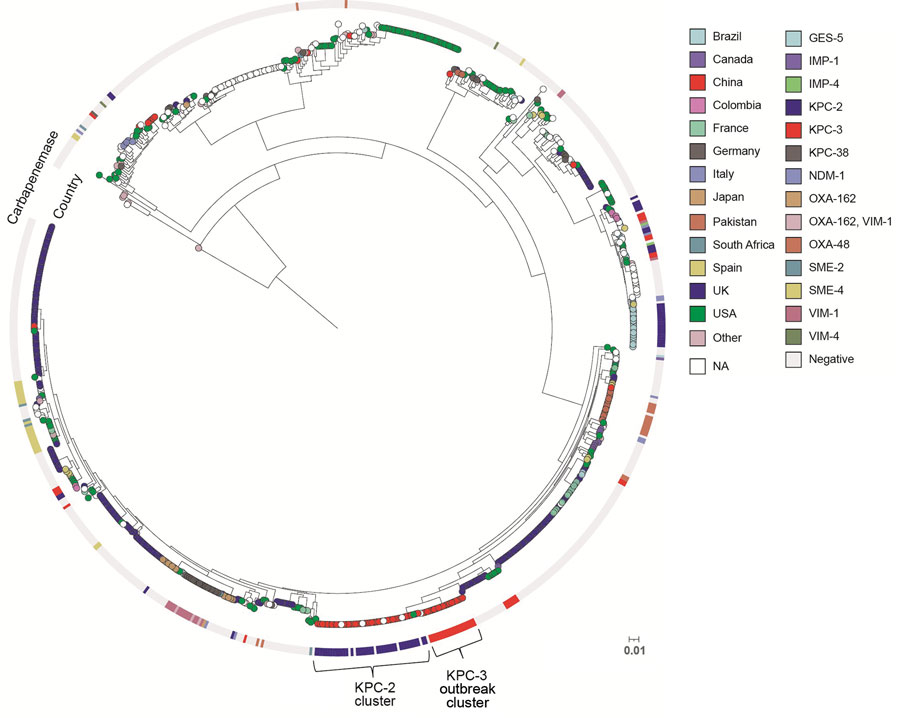Volume 28, Number 7—July 2022
Research
Outbreak of IncX8 Plasmid–Mediated KPC-3–Producing Enterobacterales Infection, China
Figure 2

Figure 2. Core-genome phylogenetic tree of 748 Serratia marcescens genomes from the National Center for Biotechnology Information RefSeq database (https://www.ncbi.nlm.nih.gov/refseq) and 18 KPC 3–producing strains from an outbreak of KPC 3–producing Enterobacterales infection at a tertiary hospital in Ningbo, Zhejiang Province, China, August 1, 2020–June 30, 2021. The isolation country is color-coded and illustrated at the tips. Carbapenemases are presented as a color-coded outer circle. The tree was rooted in the midpoint. Scale bar represents 0.01 mutations per nucleotide position. KPC, K. pneumoniae carbapenemase; NA, not available; UK, United Kingdom; USA, United States.
1These first authors contributed equally to this article.
Page created: May 05, 2022
Page updated: June 18, 2022
Page reviewed: June 18, 2022
The conclusions, findings, and opinions expressed by authors contributing to this journal do not necessarily reflect the official position of the U.S. Department of Health and Human Services, the Public Health Service, the Centers for Disease Control and Prevention, or the authors' affiliated institutions. Use of trade names is for identification only and does not imply endorsement by any of the groups named above.